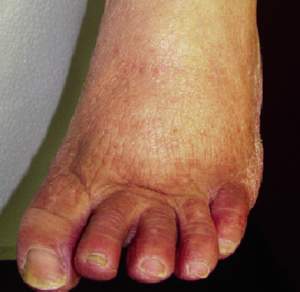
What is Neuropathy? Neuropathy is a group of disorders that happens when the nerves of a particular area of the body are damaged. This damage is typically caused by damage to nerve fibers, which in turn affects the nerve's ability to function properly.
Neuropathy can be caused by various types of injury, such as accidents and diseases, which causes them to grow weaker over time. It can also be caused by a genetic predisposition. There are various ways in which the condition can affect the person, and a person with neuropathy can have varying degrees of damage.
Neuropathy is often confused with Parkinson's disease, a disease where the muscles lose their ability to move. If your nerves become damaged, the nerves are often not able to signal a muscle's need for rest. With Parkinson's, this can become a chronic condition, where a person suffers from the symptoms of the condition, such as a loss of movement, which can eventually lead to an impairment of speech and walking. Neuropathy on the other hand, is less severe and does not require medical intervention for it to take place.
One of the more common forms of neuropathy that can occur is called peripheral neuropathy
This is often caused by damage to nerves that enter the brain through the spinal cord. These nerves help with communication between the different parts of the body. These nerves are used for processing sensory information, as well as for regulating heart rate and temperature. If these nerves are damaged, they can cause the brain to communicate with the body incorrectly and to make wrong connections, which can result in pain.
In addition to the nerves that go into the spinal cord, there may be nerve endings in areas such as the ear and hands. These nerves can be damaged, and in many cases, a person may not know they have neuropathy until they develop symptoms. If the damage to the nerve is extensive enough, it can eventually lead to hearing loss, paralysis, and even blindness.
Nerve damage is also often caused by injuries to the spinal cord itself. When nerve fibers are pulled out due to pressure from the spine, they can be damaged and become prone to infection. These nerves can then be damaged even more and become very difficult to heal, making them weak and easily irritated. If irritated for a long time, they can become infected and cause pain. They are usually treated with injections.

Neuropathy can also be caused by trauma to the bones of a person's body. For example, if bone is damaged in the bone marrow, the bone may become deformed and may not produce enough white blood cells to fight infections. The bone will begin to disconnect and eventually begin to weaken. When it weakens further, the nerves inside the body begin to lose their ability to work properly.
Nerve damage can also be caused by damage to the cerebrospinal fluid, which helps maintain the nervous system in the body. This includes the nerves that carry nutrients and oxygen to the tissues.
When nerve damage occurs, treatment usually involves the use of medications that can help the nervous system to function normally again. These medications are usually prescribed by a doctor. Some medications that can be used to treat neuropathy include acetazolamide and nimodipine. Other medications that can also help include medications that help the brain work properly, such as paracetamol and ibuprofen.
Neuropathy can also be caused by an injury to a part of the brain known as the cerebellum. This area controls many movements of the body. Damage to the cerebellum can cause problems that affect motor function and balance, as well as sensory functions such as vision and sensation. Some treatments of cerebellar neuropathy involve surgery.
There are several types of neuropathy that are not as common, however. One type of neuropathy is called endocrine. This means that it has nothing to do with the nerves or the brain at all. This type is caused when a person's hormones do not function properly.
Neuropathy can be caused by a lack of certain nutrients in a person's diet. Anemia can also be one of the causes.
